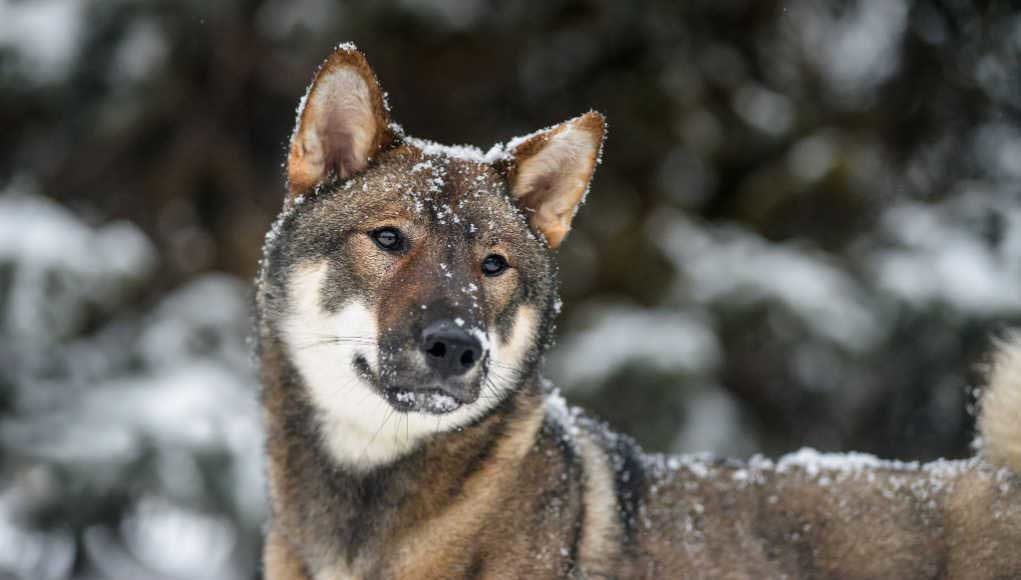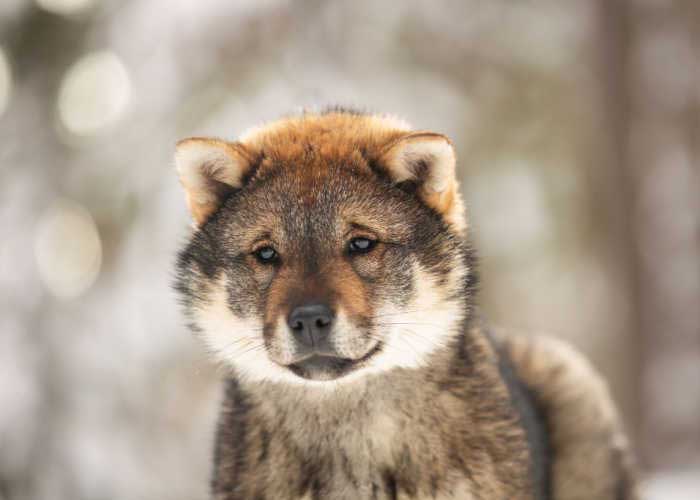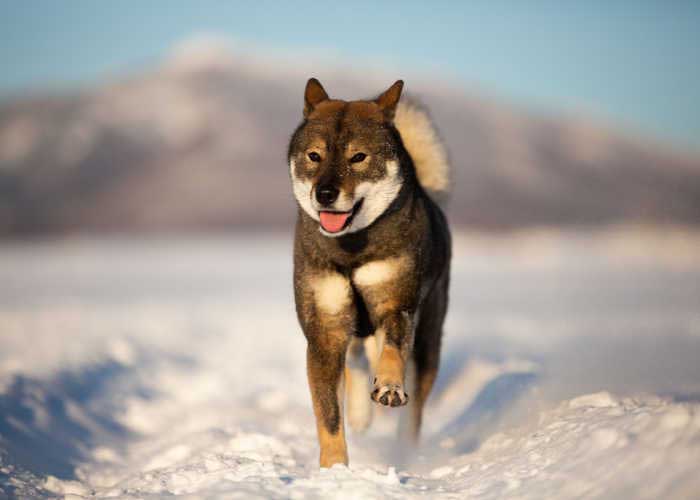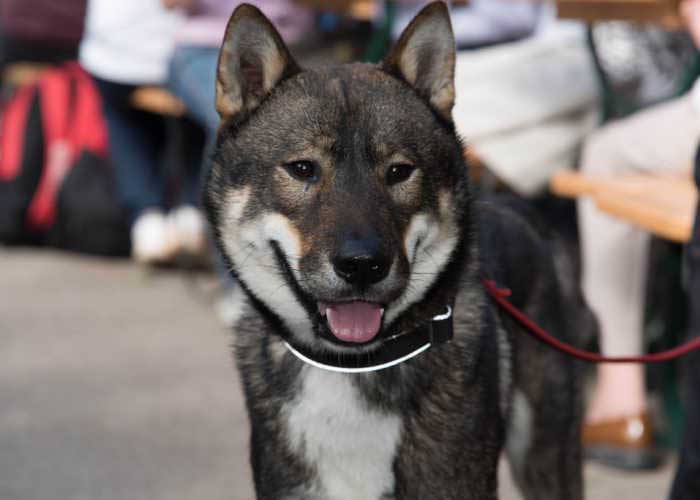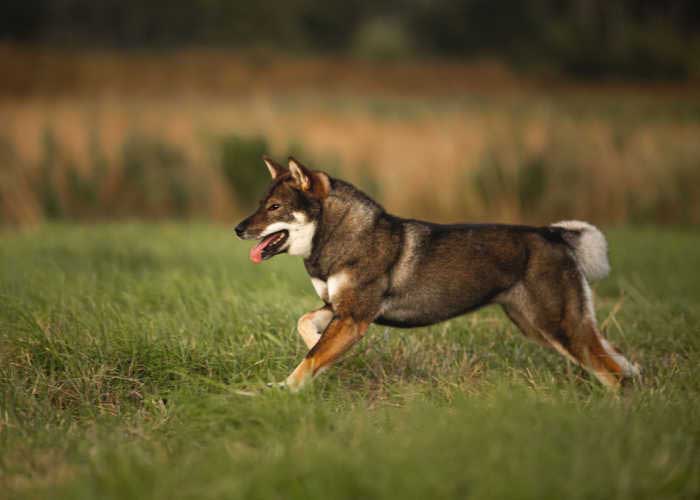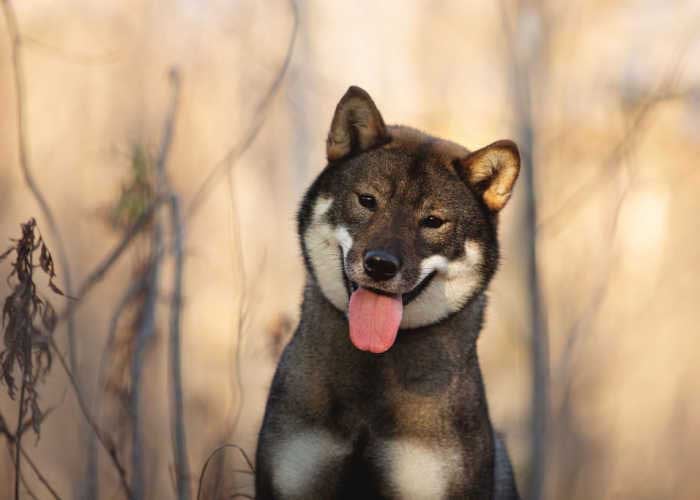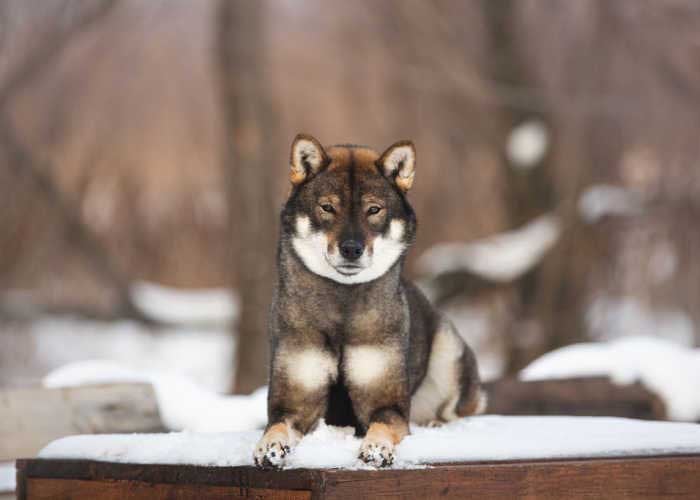Table of Contents
The Shikoku dog breed is an enthusiastic hunter who is docile towards its master. Learn more about living with this foundation stock service breed!
A dog of marked endurance, the Shikoku is sharp in perception, active, and highly vigilant.
It is often calmer, less independent, more obedient, and more submissive than the Shiba Inu while seeming like a larger version of the latter.
This breed is also known as Kochi-ken, or simply “ken” or “inu,” which are both Japanese words that translate to “dog”. It is also sometimes called Japanese Wolfdog and Mikawa Inu.
The Shikoku dog is best suited for experienced owners because it needs constant training and has a protective nature.
Originally bred mainly for hunting boar in the mountainous districts of Kochi Prefecture, it goes back to medium-sized dogs that existed in the ancient times of Japan.
This dog was domesticated by Japanese traditional hunters called Matagi in the 1700s.
Today, the Shikoku breed is prized as a devoted companion and watchdog, but is rare, even in its home country, and more so in North America.
On October 20, 2014, it was added to the Foundation Stock Service of the American Kennel Club.
Although this program was created to meet the demands of today’s enthusiasts for rare breeds, FSS dogs are not eligible for AKC registration.
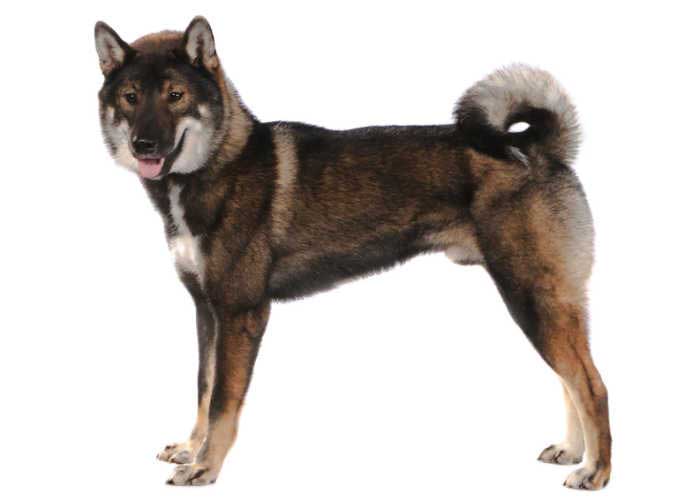 Shikoku Dog Breed Standard
Shikoku Dog Breed Standard
Height and Weight
It grows up to 17 to 22 inches and weighs between 35 to 55 pounds.
Coat
This breed has an outer coat that is rather straight and rough with a soft and dense undercoat.
Its coat can be red, black, tan, or sesame (a well-mixed color of black, red, and white hair).
Features
The Shikoku has clean-cut muscles that are well-developed and balanced.
Strong, well-boned, and compact, it has pricked ears with a sickle-shaped or curled tail.
Shikoku Family Life
The Shikoku dog is a loyal, composed, and focused animal that makes a great companion for a like-minded human.
It is strongly devoted to a human companion who possesses strong leadership qualities.
Clever and energetic, this dog does well on runs, enjoys a nice game of fetch or frisbee, and, with proper training, may even succeed in agility competitions.
It loves to demonstrate affection by head bopping, cuddling, and sitting by its owner's feet or close by in their bed, even though it may not leap up and down as soon as they see its favorite human.
The Shikoku breed can get along with other pets if introduced gradually.
However, because of the intense prey drive, it might not adapt well to homes with smaller dogs, cats, or other small animals.
Although patient, reserved, and devoted to its owners, the Shikoku dog breed is often not a good choice for families with small children.
It prefers to spend most of its time with adults or older kids who can play gently.
Nevertheless, this ball of fluff can be a wonderful friend for young children who are taught the right ways to approach and play, especially for those who are looking for a cuddle buddy or “protector.”
Like all breeds, no matter the size, always teach children how to treat dogs.
Shikokus can be great buddies but no matter how friendly, you should never leave them all by themselves with a child.
Shikoku Dog History
Shikoku breeds are descended from the medium-sized dogs that were common in ancient Japan. They were used by Japanese hunters known as Matagi to track and contain wild boars.
These dogs were calm and quiet among their human companions and made excellent hunting partners thanks to their athletic ability and stealthy demeanor.
They were able to maintain a high level of purity for centuries thanks to their remote home in the mountainous island terrain of Japan.
In 1937, the breed received the designation of the area and became a Natural Monument.
The American Kennel Club acknowledges Shikoku dogs in the Foundational Stock Service group to aid in their conservation, though this does not give them full recognition as a registered breed.
The Canadian Kennel Club and the United Kennel Club recognize Shikoku dog breeds in North America.
The Japan Kennel Club and the Fédération Cynologique Internationale (FCI), the largest international federation of clubs, both recognize the breed internationally.
Shikoku Breed Health
Although typically a healthy breed, the Shikoku can experience various health issues since there is no guarantee that it will not inherit ailments.
Dysplasia of the elbow, knee, or hip is a condition that results from incorrect joint development and is frequently accompanied by symptoms like limping or discomfort when standing, sitting, or lying down.
When your dog moves, the kneecap might fall out of its normal place due to the condition known as patellar luxation. This causes lameness reducing the mobility of your dog.
Your furry friend may also encounter epilepsy which is a neurological disorder that results in seizures.
Like most dog breeds, the Shikoku is susceptible to allergies brought on by the environment, food, fleas, and particular substances (contact dermatitis).
While shielding every dog from inherited issues is impossible, the danger can be reduced with the right treatment.
The majority of Shikoku dogs live healthy lives, often until the ages of 10 to 12.
RELATED: Most Common Allergies In Dogs
How to Care for Shikokus
Exercise
The Shikoku breed can become destructive if it doesn’t exercise enough.
You can exercise your pooch by playing outside, especially in a fenced-in area, or going on daily walks.
Swimming, hiking, and retrieving balls or flying discs are some examples of outdoor activities that can be a wonderful way to burn off energy.
It can also be done through indoor games like hide-and-seek, chasing a ball that has been rolled across the floor, or practicing new moves.
Taking the stairs and going through the apartment halls can even exercise your dog when you can’t go on a walk.
Getting your pup ready for canine sports like agility, obedience, and rallying can be a terrific way to get it moving.
Training
Although reasonably attentive to its master and intelligent, the Shikoku dog is nonetheless considered to be primitive.
It still exhibits more wild traits than other domesticated dogs that developed a habit of coexisting with people over time.
Due to its temperament, your pet's behavior with people will vary greatly based on socialization at the puppy stage.
Shikoku puppies are intelligent. If bored, they will find amusement in the house, some of which may turn into harmful and undesirable habits.
This is why it's so crucial to train and socialize your dog as soon as possible.
An untrained Shikoku dog breed may exhibit some aggressive behavior toward outsiders, other animals, or anyone it believes to be a threat.
Still, it might be able to coexist peacefully with another household pet if nurtured together.
Training this breed can be difficult because it is fairly independent and willful. So, you need to be a fair and consistent leader at all times using encouraging methods and prizes.
Grooming
Shikokus’ double coat requires no trimming and is naturally clean with no doggie odor.
So, a bath now and then will keep them clean and looking their best in addition to weekly brushing.
Daily brushing and combing with a de-shedding tool can speed up the process when it’s the seasonal shedding of the undercoat, as these dogs shed heavily every year in the spring.
Trim the nails every once in a while, as long as the nails don't grow too long to the point where you can hear them clicking on the floor.
Check the ears for signs of infection. You may want to wipe them out to spot potential problems.
Brush the teeth daily to improve general health and breath.
Diet and Nutrition
Shikoku breeds should consume high-quality dog food in the right amounts to prevent weight gain.
Treats can be valuable when in training, but offering them in excess might lead to obesity.
Shikoku dog breeds should thrive on premium dog food, whether produced commercially or made at home under the guidance and consent of a vet.
To choose a balanced diet, speak with your veterinarian to determine meal portions and suitable dog food based on your dog's age, weight, and activity level.
Fresh, clean water should always be accessible.
Ideal Owner of Shikoku Dogs
While it may not look like a lot to handle, the Shikoku is best handled by someone who has had prior puppy experience.
Due to the intense prey drive, it would thrive in a one-pet household, ideally with only older children if any.
This breed has the potential to develop into a fiercely loyal and loving companion with the right training and leadership.
Although coat maintenance isn't that difficult, it may not be the best choice for allergy sufferers because the coat blows seasonally.
The Shikoku dog doesn't require a large area to run around in, like a yard. Still, it won't survive well spending the day alone in a little apartment or loft.
It can get along with kids, but this quiet species might not get along with extremely lively kids or even adults.
It prefers to spend most of its time with adults or older children who can play gently.
As a hunting dog with plenty of energy to spend, the Shikoku breed is especially well-suited to single owners who spend a lot of time outdoors.
Therefore, owners must commit to providing ample daily exercise and mental stimulation.
Bred to hunt for decades, it cannot be left unattended as it may chase dogs, cats, squirrels, or other animals while disobeying its owner's commands to stop.
So, always keep your pet on a leash or in a secure area, like your backyard, when taking extended walks, hiking, or exploring.
FAQs about Shikoku Breeds
Does the Shikoku dog breed shed?
The Shikoku dog breed has two-layered thick coats with moderate shedding most of the year, along with a shedding season in which it drops the undercoat fur at much higher rates.
How much does a Shikoku dog breed cost?
The average price of a Shikoku puppy is between $3,000 and $3,500, depending on its availability at your location.
Expect to sign up for a waitlist because this breed is rare and does not always easy to come by.
Is a Shikoku dog breed a good family pet?
It is often not ideal for families with small children or other pets but can be a wonderful dog for experienced, adult-only owners.
This breed has a tendency to be protective and if not given regular, thorough training, it could become aggressive.
Shikoku Dog Breeds: Summary
If you are fond of the great outdoors, Shikokus could be the right canine companions for you! They could be your next favorite buddies to match your active way of life.
These dogs are smart that normally behave well at home and respond well to training methods based on positive reinforcement.
With the right leadership, they can turn out to be fiercely loyal and loving companions.
So, are they the dogs that you desire?
People purchase Shikoku dogs without the ability to commit to the lifetime of these animals. If you want to bring a dog home, consider adopting one.
There are many Shikoku breeds in need of fostering.
Still, gather more information before getting a puppy to see compatibility with your lifestyle.
You may visit various breeders and see the dogs yourself. Find a reputable breeder who will show health clearances to prove that the dogs are clear of health conditions.
These dogs are already rare in their home country but are far more uncommon in North America.
However, the American Kennel Club has a registry of breeders for all dogs, including those like the Shikoku dog breeds if you wish to bring one to your home.


